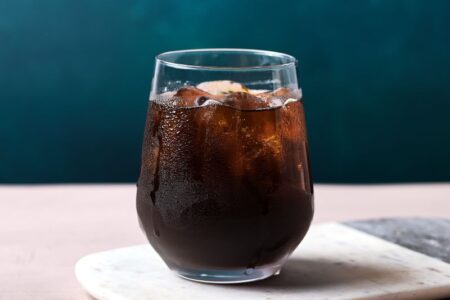The new era of functional coffee

With more and more functional coffees hitting the market, consumers have a bevy of choices from ultra-caffeinated to “biohacks” to nootropics. However, coffee brands must decide which functionalities make the most sense to target. By Matthew Barry
Coffee has been a functional beverage for as long as it has existed. Every day people worldwide use coffee to wake up in the morning or for a little boost to get them through the day. What is changing though, is the number of people looking to coffee for more than that.
This is because coffee is now better understood to be a naturally healthy beverage, high in antioxidants and linked to numerous health benefits. As functional trends sweep through beverages in general, many have turned to coffee to serve as a base for emerging functional products encompassing both traditional energy uses as well as some unusual areas.
Energy is, and will remain, the core of coffee’s functional usage. The older offer of regular or decaf is giving way to a much wider set of options. This ranges from a new wave of reduced caffeine choices like cascaras to the emergent ultra-caffeinated segment led by Death Wish and its caffeine levels several times above those of a standard cup. The key thread is the idea of giving consumers a greater array of choice and ensuring they can have the exact level of energy boost they want at any given moment.
Caffeine can be modified in other ways too. The use of L-theanine or CBD (cannabidiol) oil is often done to change the energy boost of coffee to be more moderate and sustained, thus creating a different energy experience without actually toggling with caffeine levels. With rising rates of anxiety and sleeplessness, these mitigated takes on caffeination look set to grow considerably in popularity in the coming years.
Part of a Morning Beauty Routine?
Perhaps the best-known functional coffee brand among the general population is Bulletproof, whose MCT oil-enriched coffee is designed to be just part of an overall system to “biohack” your life. What Bulletproof and its various imitators have realized is that coffee tends to follow very fixed consumption patterns. If you want consumers to consume something like MCT (medium chain triglyceride) oil daily, it makes a great deal of sense to start from a beverage that many people drink reliably every morning already.
How long Bulletproof specifically will be around remains to be seen, but this general idea of coffee as the base of a wider routine will stick around. Particularly interesting here is the brand Vita Cup, whose collagen-infused coffees are designed to make drinking coffee a regular part not just of consumers’ morning routines but their beauty routines specifically. Coffee’s tentative entrance into the ingestible beauty segment shows its versatility as a functional beverage and how many consumers needs it can conceivably speak to.
The Future of Functional Coffee
Another area that coffee has just begun to enter is the nascent cognitive-enhancement, or “nootropics” segment. Coffee is, of course, already widely used to provide concentration and focus. Nootropic coffees like Four Sigmatic ask what could be done potentially on top of that to further enhance someone’s mental capabilities through additives like mushrooms or L-theanine. There is reason to be skeptical of many of the claims floating around in this segment, given its largely unregulated nature, but the undoubted interest from everyone from ageing Baby Boomers worried about memory loss to high school students looking to maximize their ability to study means that there will undoubtedly be more nootropic coffees appearing in the years ahead.
Given this proliferation of functional beverages appearing, coffee will need to consider which functionalities make the most sense for it to be targeting. That will likely be the ones that are most strongly associated with coffee’s traditional usages, namely, cognition and energy. Areas like beauty or cannabis could very well end up being promising areas for coffee, but it does not start with any inbuilt advantages. Regardless of which specific functionalities win out in the end, functional coffee in general will undoubtedly prove one of the most interesting segments of coffee in the future.
- Matthew Barry is senior beverages analyst at London-based Euromonitor International. He is based in the Chicago, Illinois office, and may be reached at: [email protected].



